Resources for Abortion Care Access in Trigger Law States

Jorge Maya / Unsplash
The Supreme Court's decision to overturn Roe v. Wade this June has caused devastation, shock, and fear amongst many Americans. In the wake of this decision, thousands of Americans found themselves without legal access to care as many "trigger" laws throughout the states went into effect, with more coming soon.
Abortion is not solely a women's rights issue. It is a human rights issue, a parenting issue, and an LGBTQ+ issue. The loss of legal abortion in certain states will affect many lives—and not just those of the straight, bisexual, and trans individuals who want to terminate their pregnancy. It could also impact miscarriage care with wanted pregnancies, IVF, maternal mortality, and national poverty rates. Activists also worry that the loss of Roe could also lead to the ending of more civil rights, including same-sex marriage.
At Parents, we believe that people should be able to make their own reproductive health choices. And that even in a trigger state that has banned abortion and made it harder to access care in other states (see list in our FAQs), you still have the right to that care. Fortunately, there are abortion resources that can help.
We looked at more than 20 different resources that serve people in trigger states that take good security precautions to keep their users safe. Each of these organizations were heavily vetted to ensure they will provide trusted care and treatment of all who seek support. Here are the ones we recommend.
It's important to keep in mind that many resources are still undergoing changes now that Roe has been overturned. Companies are still figuring out how to provide the added protection and security users may need in trigger states, so security updates may be ongoing. We suggest using an incognito browser or private search engine to research abortion care resources. We will update this list frequently to reflect any security changes.
Helpful Resources
Abortion Funds: National Network of Abortion Funds
Travel Resources: Midwest Access Coalition
Logistics: ARC-Southeast
Therapy/Counseling For those Seeking an Abortion: All Options
Therapy/Counseling Those Who Have Had an Abortion: Exhale Pro Voice
Legal Advice: Repro Legal Helpline
Abortion Care: I Need An A
Abortion Pill Providers Aid Access
Surgical Abortion Care: Brigid Alliance
Abortion Fund: National Network of Abortion Funds
Key Specs
Languages Spoken: English (some pages are translated into Spanish)
Restrictions to Be Aware of in Trigger states: Some funds and resources on this site are temporarily or permanently inactive in certain trigger states.
Security Features: Only uses session cookies, and does not knowingly collect or maintain personally identifiable information. Other funds on the site may have more security features.
Why We Chose It
The National Network of Abortion Funds is an easy-to-use resource that clearly lists the links to every abortion fund in the United States. Not only does the National Network of Abortion Funds have a large database, but it also has helpful resources and articles to help people get the care they need.
Pros & Cons
Pros
A large list of resources to find abortion funds in each state
Lists resources for how to find a clinic and how the abortion pill works
Provides safety tips when choosing a clinic or resource
Cons
Not completely secure
Certain funds can become outdated due to a lack of money or legal issues
Overview
According to its mission statement, "the National Network of Abortion Funds builds power with members to remove financial and logistical barriers to abortion access by centering people who have abortions and organizing at the intersections of racial, economic, and reproductive justice."
Since its founding in 1993, The National Network of Abortion Funds (NNAF) has worked tirelessly to create and facilitate a network to provide financial and logistical support to those needing an abortion. It lists abortion funds for all 50 states (including trigger states) and international funds so people can get the funds they need without having to do extensive Google searches that could be tracked and lead to misinformation.
NNAF has a detailed news section and tracks state legislative updates to keep everyone informed on the latest legal barriers. However, because the internet is never fully secure, users should take some precautions while using this site. You will be looking at a lot of different websites, and some may not be secure or as secure as NNAF itself. When doing research about abortion, always use a VPN or use private browsing mode on your computer.
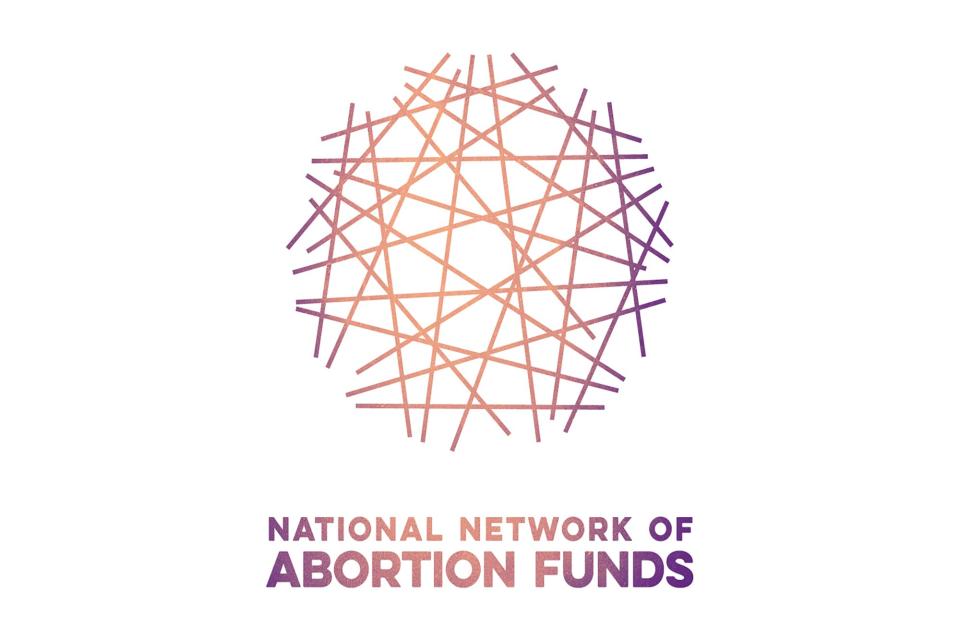
Abortion Fund: National Network of Abortion Funds
Key Specs
Languages Spoken: Website can be translated into over 100 languages
Restrictions to Be Aware of in Trigger States: Services Illinois, Indiana, Iowa, Kanas, Michigan, Minnesota, Missouri, Nebraska, North Dakota, Ohio, South Dakota, and Wisconsin. How they can best serve these states may depend on current and upcoming trigger laws and potential travel restrictions.
Security Features: Features a quick exit tab that links to a Google search of cute animals when pressed. Can arrange support through phone calls or email.
Why We Chose It
The Midwest Access Coalition serves 12 states and can help arrange and fund transportation for those seeking an abortion but who may not have the money or resources to get to their appointment. A team of volunteers can help people cross state lines or even across cities to get the care they need.
Pros & Cons
Pros
Able to help people in many trigger states.
Helps with the cost of transportation, gas, food, medication, and childcare
Also helps with booking transportation and has volunteer drivers
Cons
Only services Illinois, Indiana, Iowa, Kanas, Michigan, Minnesota, Missouri, Nebraska, North Dakota, Ohio, South Dakota, and Wisconsin
Mostly volunteers
Overview
Founded in 2014, the Midwest Access Coalition (MAC) has served more than 3,000 people in 30 states to get the care they need. This includes the trigger states of Missouri, Ohio, South Dakota, and Wisconsin, among other states. While MAC does not fund the actual abortion procedure, it helps coordinate and fund transportation to the appointment. This includes booking bus, train, or plane tickets, reimbursing gas money, arranging rides to and from clinics, and setting up lodging and childcare.
MAC has over 200 active volunteers in the Chicago area ready and willing to help and serve those living in the midwest, including Illinois, Indiana, Iowa, Kanas, Michigan, Minnesota, Missouri, Nebraska, North Dakota, Ohio, South Dakota, and Wisconsin. MAC can be contacted by phone call, text, or email, and the site has a quick exit button that directs people to safe Google searches when clicked for extra privacy.
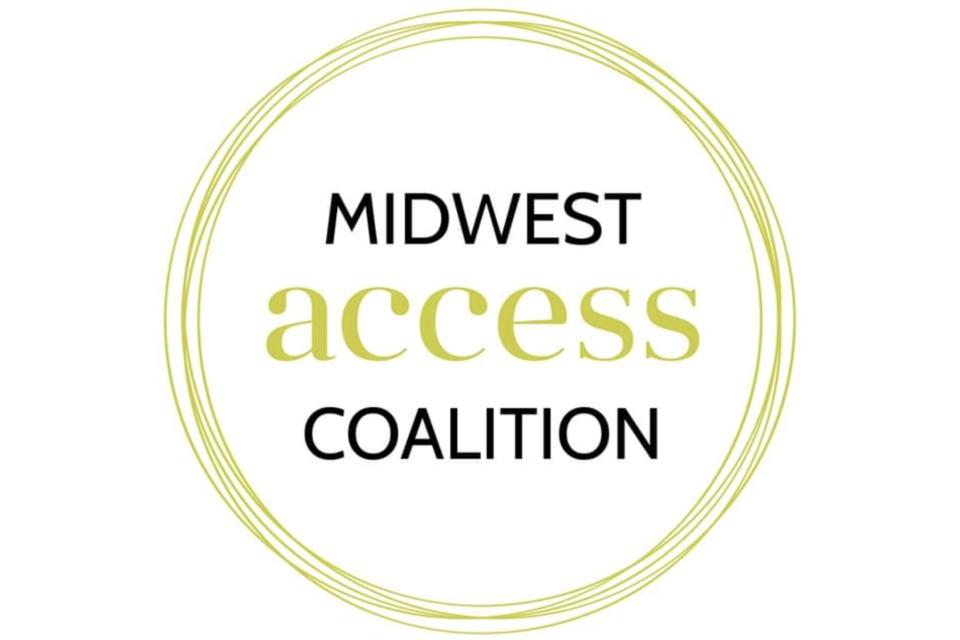
Logistics: ARC-Southeast
Key Specs
Languages Spoken: English
Restrictions to Be Aware of in Trigger States: Currently supports callers in Alabama, Florida, Georgia, Mississippi, Tennessee, and South Carolina. As of July 2022, abortion is legal in Georgia and Florida with different rules and bans in each state.
Security Features: Online requests and takes phone calls
Why We Chose It
Access Reproductive Care (ARC)-Southeast provides funding and logistical support to Southerners in Alabama, Florida, Georgia, Mississippi, South Carolina, and Tennessee, working with networks and volunteers committed to getting people the abortion care they need and deserve.
Pros & Cons
Pros
Provides social justice programs, working on how to move forward in a post-Roe world
Provides practical assistance including rides, lodging, and escorting to and from the clinic
Can be in touch with someone within 24–48 hours
Cons
The healthline has very limited hours and is not open on the weekend
Security of resource is not clear
Overview
Co-founded by three Black clinic workers in Atlanta, Georgia, ARC-Southwest has been working hard to eliminate barriers to accessing abortions. Since 2016, ARC-Southwest has completed over 24,000 intakes for Southerners to get the care and assistance they need. This can range from funding for an abortion to providing practical support including rides, lodging, and childcare. They can even help people with advice on judicial bypass, which allows people under 18 access to abortions without parental consent.
People can put in an assistance request by submitting an online form or by calling the healthline during their hours of operation; someone from the organization will respond within 24–48 hours.
ARC-Southwest not only provides funding and logistical support, but also has education and leadership development programs for communities of color to help abolish stigma and fight for reproductive justice.
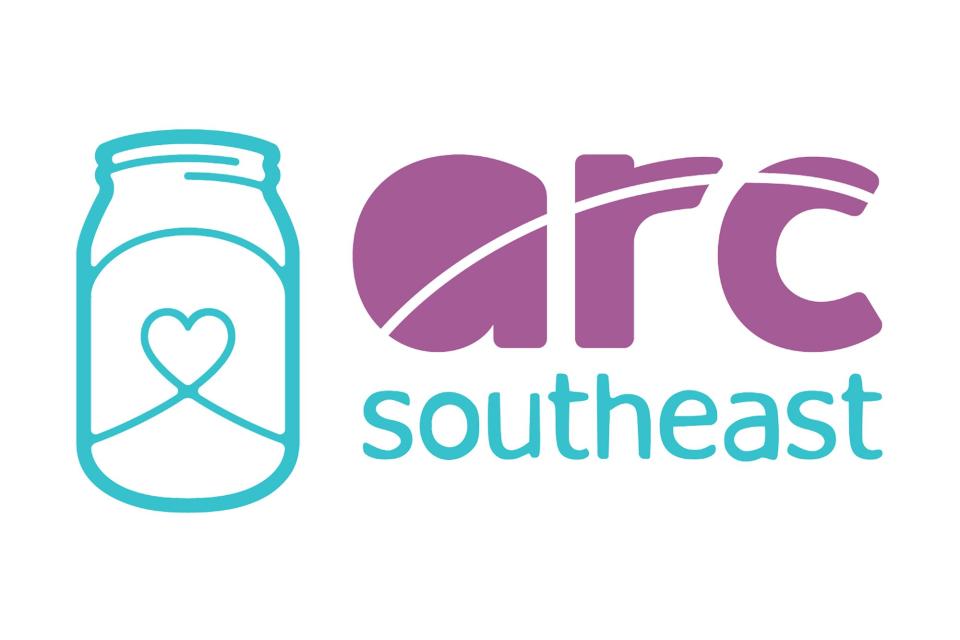
Therapy/Counseling For those Seeking an Abortion: All—Options
Key Specs
Languages spoken: English
Restrictions to Be Aware of in Trigger States: None (though folks may want to take precaution as to what phone they use and where they make this call if in a trigger state that criminalizes abortion)
Security Features: None featured, but it is an anonymous phone line that provides counseling about all options when it comes to pregnancy, including abortion, parenting, and adoption
Why We Chose It
All-Options is a peer counseling service that helps people decide if abortion is right for them and provides the emotional support and resources they need to help make the best decision.
Pros & Cons
Pros
Helps callers in the United States and Canada
Toll-free
Gives information on many options
Cons
Volunteer-based
Not solely for abortion care
Only open during certain hours
Overview
Originally known as Backline, All-Options is a California-based company provides peer counseling through a toll-free hotline to give callers in the United States and Canada the emotional support and information they need to make a decision about their pregnancy. Options discussed include parenting, adoption, and abortion.
The website provides links to abortion finders, funds, and information on the types of abortions available and explains how they are performed. Because the phone line does not ask for personal information, and the organization offers support around all pregnancy concerns, not just abortion, you can reach out to them with no doubts about your privacy and plausible deniability about why you contacted them.
Notably, volunteers working for All-Options have to complete a 30-hour training program before they start taking calls, which compares favorably to similar helplines.
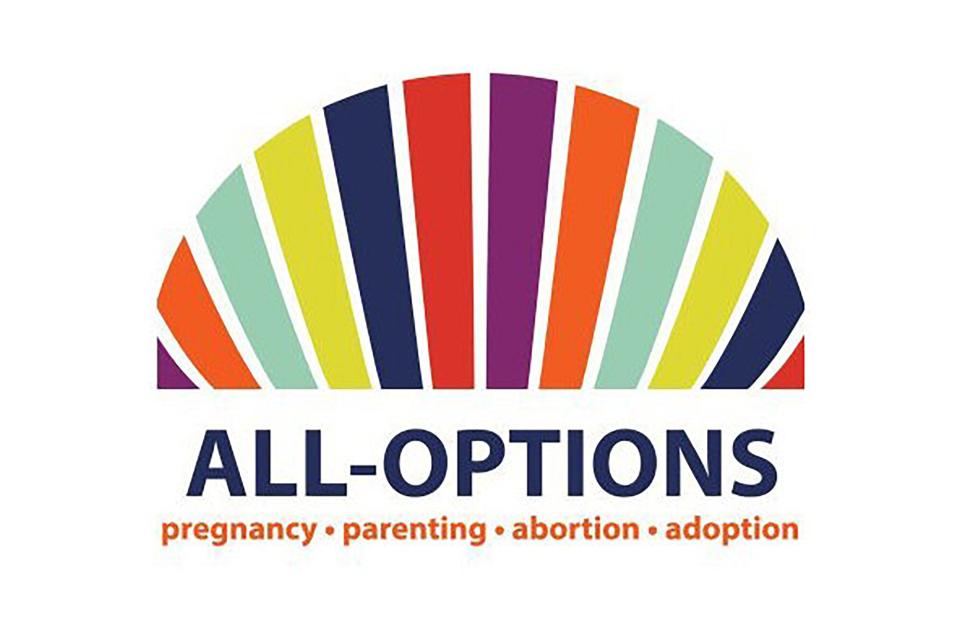
Therapy/Counseling for Those Who have had an abortion: Exhale Pro-Voice
Key Specs
Languages spoken: English
Restrictions to Be Aware of in Trigger States: None, but users should be careful when using text messages to talk about their abortions, as it may be used as evidence
Security Features: Features a safety exit tab on the website that sends users to Google when clicked; texts are confidential within the company.
Why We Chose It
Exhale is a "pro-voice" textline run by peer volunteers to help people with abortion after-care. Its "pro-voice" method gives people space to talk about their feelings and experience in a non-judgmental way.
Pros & Cons
Pros
Texts are confidential as volunteers are not allowed to share messages with others; texters are kept anonymous, meaning the volunteer doesn't know the texter's number nor can they ask for personal information.
Offers virtual support groups for people after having an abortion
Only for post-abortion emotional support
Cons
Only available on certain days at certain hours
Text-based, which could lead to an information trail
Overview
Exhale Pro-Voice is a San Franciso-based textline that allows people to talk through their abortion experience or find ways to help support a partner, child, or friend with their experience. Available throughout the United State and Canada, this is a free service provided by trained peer facilitators for people who had abortions, partners, and family members, as well as friends, mental health clinicians, abortion providers, doulas, and anyone struggling in an after-Roe world.
While facilitators are from all walks of life, every facilitator has a lived experience that can help them support the users of the textline.

Legal Advice: Repro Legal Helpline
Key Specs
Languages spoken: English, Spanish, Chinese.
Restrictions to Be Aware of in Trigger States: Lawyers will help you get the answers you need to understand the laws in your trigger state or connect you to a lawyer in their network.
Security Features: Has a quick exit tab, links to internet safety resources (including privacy browsers), secure online form, and confidential services
Why We Chose It
Repro Legal Helpline is a free, confidential legal helpline that gives information about how to self-manage abortion, help minors access abortion care, and obtains referrals from local resources.
Pros & Cons
Free legal advice
Focus on security
Legal advice on self-managed abortions and judicial bypass
Cons
Only available to those living in the U.S. - excludes U.S. territories
Unable to give information on where to get an abortion
Overview
The Repro Legal Helpline is run by If/When/How: Lawyering for Reproductive Justice, a non-profit organization comprised of lawyers, advocates, and organizers to help people make decisions about their reproductive lives. Its helpline is focused on United States federal law and on the specific laws in each state. Through the helpline, lawyers can give free legal advice for self-managed abortions and judicial bypass process for people under 18.
If you have been arrested or questioned by the police, Repro Legal Helpline can help connect you to a lawyer for your defense. It is also dedicated to security and privacy with a quick exit tab and resources for online safety, including how to secure the internet and safely, and recommendations for messaging apps (such as Signal). Finally, the service also uses a secure online form for messaging. If you have any questions about your legal rights in your state, check with Repro Legal.
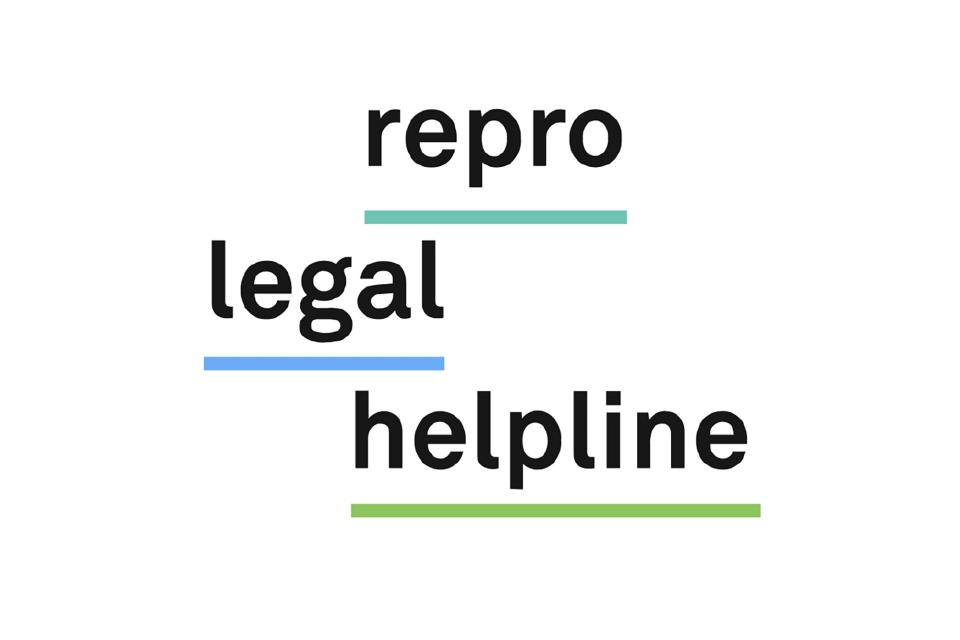
Abortion Care: INeedAnA
Key Specs
Languages spoken: English, Spanish
Restrictions to Be Aware of in Trigger States: INeedAnA is hyper-aware of the current trigger bans and ongoing abortion bans and is working accordingly to provide and suggest the best care and resources available.
Security Features: Never asks for identifiable information and doesn't collect data. Encourages users to use a private browser.
Why We Chose It
INeedAnA locates trusted abortion clinics near the user, preventing them from having to use unsafe search engines to find a clinic or getting scammed by fake clinics.
Pros & Cons
Pros
Locates the nearest abortion providers for trigger states (and how far each is)
Resources to locate the abortion pill
Does not keep any personal information
Cons
Website looks very bare
Could be safer, as you still have to click on links to different websites
Overview
INeedAnA is an abortion care search engine that allows users to locate the nearest abortion clinic based on their zip code, age, and the number of weeks since their last period. Using that information, they can help you find the nearest clinic for your needs and even recommend whether a medication abortion is right for you. However, remember that this is just a type of search engine—it's the user's duty to make sure the options fit their needs.

Abortion Pill Providers Aid Access
Key Specs
Languages spoken: English and Spanish
Restrictions to Be Aware of in Trigger States: While Aid Access does send abortion pills to trigger states, it takes longer for patients to get them (1-3 weeks) and they are often the generic.
Security Features: Ships to home addresses with discreet packaging. Has an FAQ on how to obtain the abortion pill while remaining undetectable.
Why We Chose It
Aid Access provides immediate access to the abortion pill in 21 states for $150 through doctors based in the U.S. For people in other states, such as trigger states, Aid Access uses European doctors to provide prescriptions, which are filled by a pharmacy in India and shipped in 1-3 weeks for $110.
Pros & Cons
Pros
Available in states with strict abortion bans
Can get abortion pills in advance for future use
Can have them delivered to any home address
Cons
Cost ranges from $110 to $150
Can take 1-3 weeks to get the pills in trigger states
May be harder to access the abortion pill safely in trigger states
Overview
Founded by Rebecca Gompert, M.D., MPP, Ph.D., a Dutch physician, Aid Access has quickly become the go-to abortion pill provider since medication abortion at home became legal in 2020. Aid Access is available in any state where it is still legal to have an abortion and sends pills to patients who are up to 10 weeks pregnant.
Because Aid Access is an Austria-based health care provider, they can use European doctors to prescribe abortion medicine to people in trigger states, but the prescription will be filled by a pharmacy in India. This means you will receive generic versions of the abortion pills—and due to shipping times, it may take up to one to three weeks to receive it. Generic abortion medication is considered safe to use, but it's not FDA tested.
This service can be legally risky in states that also ban telehealth abortions. While the Biden administration has said that abortion pill can be mailed to all 50 states and the mailers are not allowed to tamper with mail, some trigger states are trying to outlaw the pill. For instance, Alabama state representative Andrew Sorrell has sponsored legislation to outlaw the abortion pill with fines and criminal penalities.
We recommend speaking with a reproductive lawyer before ordering to understand your rights.
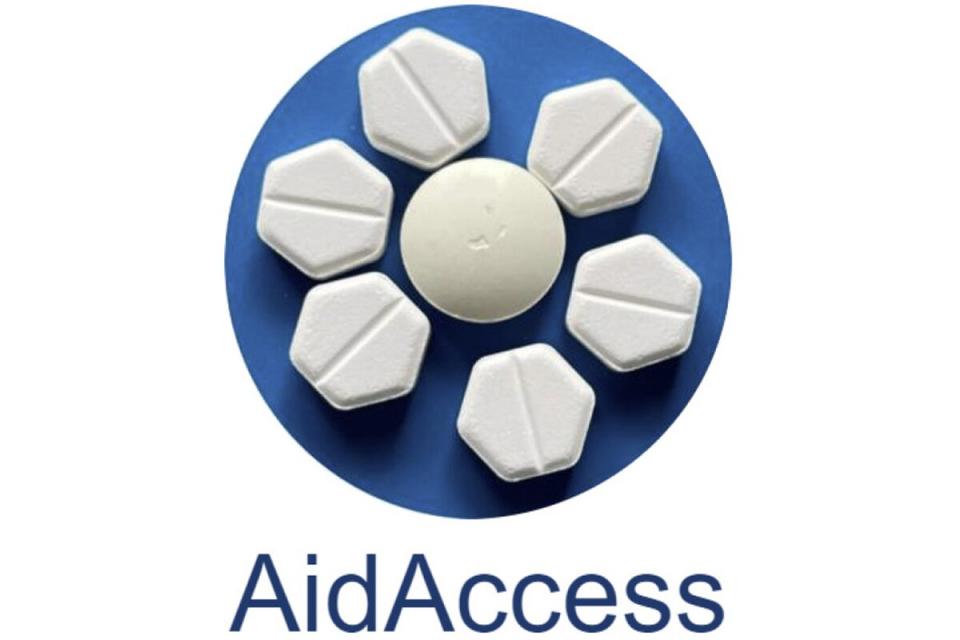
Surgical Abortion Care: The Brigid Alliance
Key Specs
Languages spoken: English, Spanish
Restrictions to Be Aware of in Trigger States: The Brigid Alliance is currently working on the best way to operate in trigger states after Roe but is still committed to providing care throughout the whole U.S.
Security Features: All communication is confidential according to the website (though it does not specify how); users are able to talk to a Brigid Alliance client services coordinator about any and all safety and privacy concerns.
Why We Chose It
The Brigid Alliance is a referral-based service that provides logistical support including travel, lodging, child care, and food to those who are 15 weeks pregnant or later and seeking an abortion.
Pros & Cons
Pros
Provides logistical help for people who are beyond 15 weeks pregnant
Helps arrange travel and lodging for people who will have to travel outside their state for the care they need
Cons
Does not help cover the cost of the actual abortion procedure
Overview
The Brigid Alliance is a referral network that can help book, coordinate, and assist with payment for travel, child care, lodging, and food for those who are later in their pregnancy and seeking an abortion if they are more than 15 weeks into their pregnancy. The service can give both direct support and use its network of partners to help people get the abortion care they require.
The Brigid Alliance works with people from all demographics and financial situations and helps anyone in need, regardless of their immigration status.
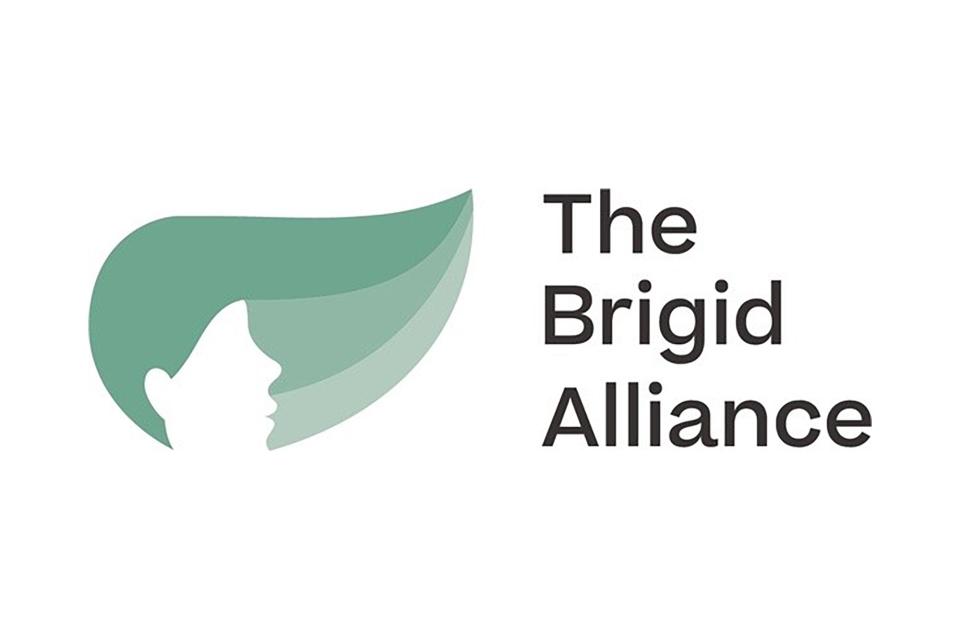
Final Verdict
It's important to remember that laws are changing every day when it comes to abortion rights—sometimes for the better and sometimes for the worse. It's also important to stay up to date on all the latest legislation changes in your area. If you are in a trigger state and want to know your legal options, contact the Repro Legal Helpline for guidance. If you are in a trigger state and need abortion care, use INeedAnA to get information on the closest clinic or resources available.
Frequently Asked Questions
What is a trigger state?
A trigger state is a state that created laws that made abortion illegal or severely restricted before the passing of Roe in 1973. In those states, the law was still on the record but could not be enforced due to federal constitutional protection from the passing of Roe vs. Wade. Now that Roe has been overturned, these laws immediately go back into effect and will be enforced. Some states have already begun enforcing these laws, while others are facing blocks, waiting periods, and legal battles.
Which states are trigger states?
Thirteen states have trigger laws, but not all of them are in effect at the time of this writing. Here is a breakdown.
States where abortion is illegal: Alabama, Arkansas, Louisiana, Mississippi, Oklahoma, Ohio, South Dakota, Texas, and Wisconsin
Soon to be illegal: Idaho, North Dakota, South Carolina (six-week ban), Tennessee (six-week ban), Wyoming
States with trigger bans that are blocked at the time of this writing: Arizona, Georgia, Iowa, Kentucky, North Carolina, and Utah
It's complicated: West Virginia is an interesting case as it has a trigger ban with no exceptions for rape or incest but it was found unconstitutional by the 4th Circuit Court of Appeals in 1975. However, the current Attorney General, Republication Patrick Morrisey, says the law is valid. Abortion-right advocates have filed a lawsuit to block its enforcement, so it is still up in the air.
How should I protect myself when searching for abortion care in trigger states?
One of the best ways to protect yourself when searching for abortion care in a trigger state is to use a Virtual Private Network (VPN). A VPN creates an encrypted tunnel for your data to protect your online identity by hiding your IP address. This is beneficial if you are using a public Wi-Fi hotspot or just want extra security. If you cannot get a VPN, use a privacy search engine like DuckDuckGo to search safely, as it will not sort your data or save your search history.
Do I need to be careful when seeking or taking emergency contraception in trigger states?
Emergency contraception, such as Plan B, is not banned in any state. You can get Plan B at many major retailers and pharmacies. However, while you are not doing anything illegal by seeking out or taking emergency contraception, it's important to be cautious when purchasing contraception as reproductive rights laws are constantly changing and many predict that contraception—including emergency contraception—is likely to be targeted next.
Are there non-trigger states that are likely to restrict/ban abortion in the near future?
Yes, it's possible to see restrictions and bans on abortion in non-trigger states, such as Georgia, West Virginia, Florida, Indiana, Kanas, Montana, Nebraska, and New Mexico. Check your state laws frequently to see if there are any changes.
Will I be arrested for having an abortion (or helping someone else access abortion services)?
It depends on the state that you live in. In Texas, the abortion ban is allowed to be civilly enforced until the ban fully kicks in. Wisconsin's trigger law makes performing an abortion a felony. It's important to get legal advice from someone who knows your state laws to see what your state allows, especially when states may not have a full ban but have strict restrictions, ban telehealth abortions, or tend to make the process harder.
Can I get an abortion right now?
Yes. Abortion is still legal in many states in the U.S.; however, depending on the state you live in, you may need to travel out of state to get one.
What is an abortion pill?
The abortion pill is not one pill but two medications designed to end a pregnancy. It's a combination of mifepristone and misoprostol; mifepristone is taken first to end the pregnancy, and misoprostol is taken 24 to 48 hours later to empty the uterus.
Can I tell my therapist that I am considering or had an abortion?
This is a complex issue because, while a therapist is bound by HIPAA (federal privacy laws) to keep information between the two of you confidential, they can report you if you are a danger to yourself or others—and some anti-abortion advocates argue abortion is "child abuse." If you know your therapist is anti-abortion or you do not know their stance on abortion, it may not be wise to tell them what you're considering. You might also want to consider looking for a therapist online or using a directory such as Therapy Den to find a therapist that is licensed to treat patients in your state, even if they're located in another state.
How can I tell the difference between a pregnancy crisis center and an abortion clinic?
An abortion clinic is a legitimate health care clinic with certified medical professionals who can give you an abortion, along with any other care you need. A pregnancy crisis center is a fake clinic pretending to be an abortion clinic with the intent of talking people out of their abortion. They do not perform abortions and do not offer reproductive health care. They also often overstate the risks of abortion in an attempt to scare you. Sometimes, they're even located near or across the street from reputable clinics.
It can be difficult to spot the difference between the two, but one giveaway is that while an abortion clinic will be upfront about all of the services it provides (including abortion services), a pregnancy crisis center will not. You can also look at Expose Fake Clinics or The Fake Clinic Database to make sure you're in good hands.
What are my options if I can't get a medication abortion for temporary/permanent health/medical reasons (e.g., on blood thinners, sensitive to hormones, have an IUD in place)?
If you cannot get a medication abortion, you will need to get an in-clinic or surgical abortion. A surgical (or vacuum) abortion involves a care provider using a suction device to empty your uterus. If you are in a trigger state, you would need to travel to a state where abortion is legal to get this done.
If I can't get a medication abortion, is it safe to use herbal abortifacients?
No. It is not safe to use an herbal abortifacient if you cannot get a medication abortion. Not only is there no guarantee that it will work, but it may also make you severely ill or even kill you. Do not use an herbal blend to induce an abortion.
Methodology
To compile this list, we reviewed over 20 different resources to find the services with the best care that provide information securely to those in need in trigger states. We considered services that:
Don't collect user data: Almost every source listed here does not collect user data and promises not to sell data to a 3rd-party source.
Encourage Private Browsing: Most sites on this list encourage the use of safe internet searching, including using Incognito mode and using DuckDuckGo for private searching; many sites here can be used instead of Google to get the resources needed.
Offer a Quick Exit: Many sites had a "quick exit" button to press in case users needed to get out of the site quickly.
Provide Original Content: Many FAQ pages and blogs on these sites gave tips and expanders on how to search with care to protect your privacy and how to protect yourself in the event of an at-home medication abortion.
Use Encryption: Most sites use some form of encryption or other infosec to keep information safe.
Offer Broad Access: Trigger states all have different laws and resources, so we looked for those that provide a lot of options for people in a wide variety of places.
It's also important to note that not everyone is who they claim to be, especially when trying to get abortion care in a hostile state. Bad actors and fake resources are out there, so stay smart and on guard during this process. If a site or person asks for a lot of personal info (including your home address, full name, social security number, etc.), use it with extreme caution, and take the time to vet the resource while protecting your identity.

